Review: Obvious and Subtle Addiction Are Explored in New Australian Play DEAD CAT BOUNCE

Wednesday 27th February 2019, 7pm SBW Stables Kings Cross
Mary Rachel Brown's new Australian play DEAD CAT BOUNCE delves into the dark world of living with the less obvious forms addiction. Directed by Mitchell Butel, this work is presented with artful simplicity in the intimate space of SBW Stables Theatre.
DEAD CAT BOUNCE, which is Mary Rachel Brown's reworking of her 2016 Lysicrates Prize winning play APPROXIMATE BALANCE, focuses on the 48 year old alcoholic novelist Gabriel (Josh Quong Tart) and the women that love him. His current "love" is the 24 year old Matilda (Kate Cheel), a data entry worker with a new penchant for Russian literature and a habit of tapping her fingers. His former "love" is his 44 year old publisher Angela (Lucia Mastrantone), a woman who, whilst having built a relationship with Tony (Johnny Nasser) in the two years since she left Gabe, seems to be addicted to Gabe even though it is destroying her current relationship.
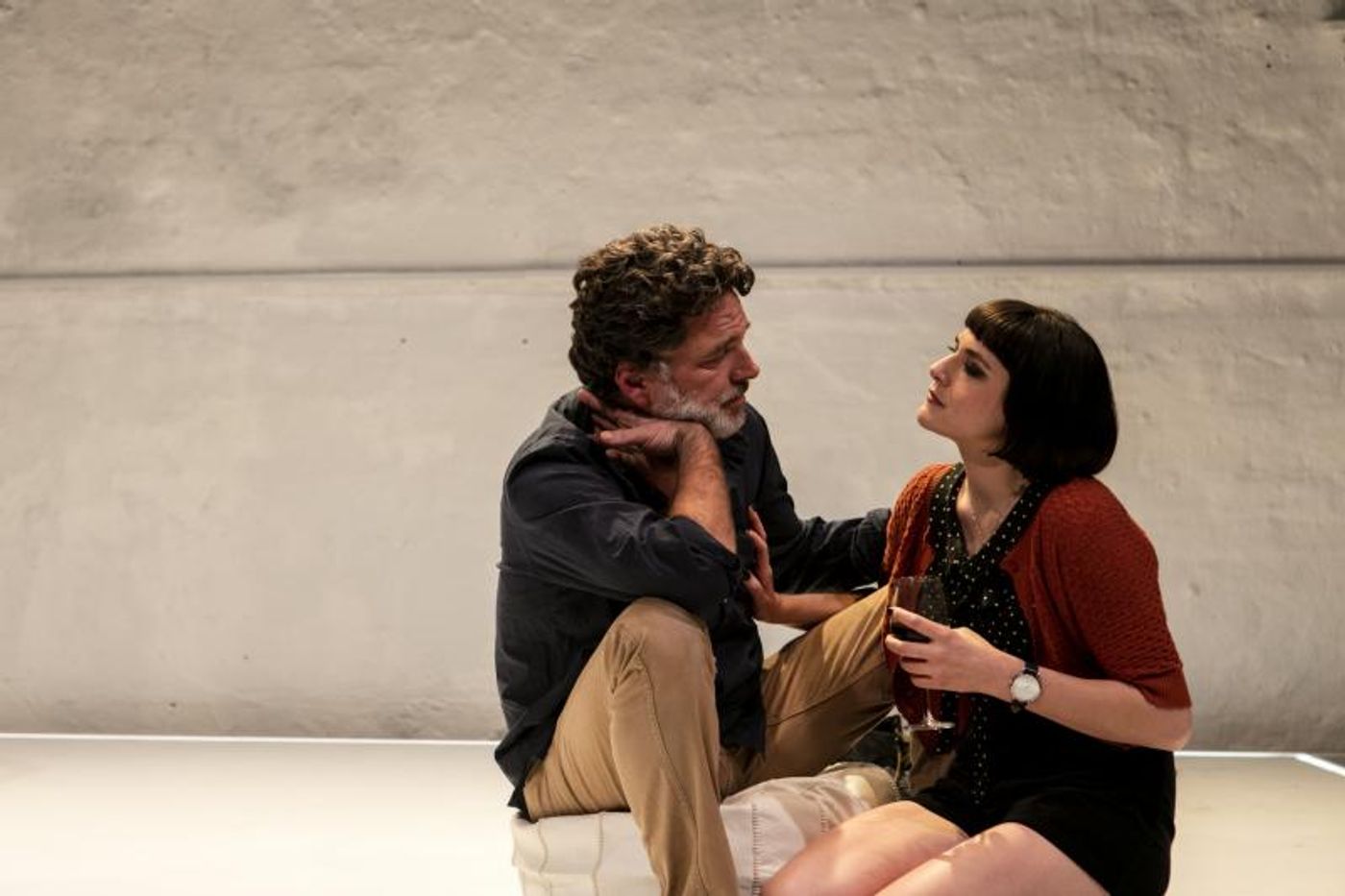
DEAD CAT BOUNCE is a text driven work so designer Genevieve Blanchett has created a beautifully simple white space with a minimal amount of furniture for Butel's performers to inhabit. The white walls and tiered white stage are illuminated by Alexander Berlage's (lighting designer) strip lighting that boarders every edge of the set and helps shift the locations whilst also adding distraction during scene changes. This is supplemented with lighting that helps transform the space from Gabe's home where we often see him in the evenings with Matilda, Angela and Tony's brighter home and the Chinese restaurant where the former lovers meet after two years for a business meeting. Blanchett's costuming draws on stereotypes to differentiate the women of the story. The younger Matilda has the accoutrements of a 21st century hipster with tailored mini shorts and skirts, blunt bob, black nails, and utilitarian boots. The more mature Angela is casual at 'home' but adopts a fiercer dark palette with leather skirt and thigh high boots when she meets Gabe. Both men remain relatively casual throughout.
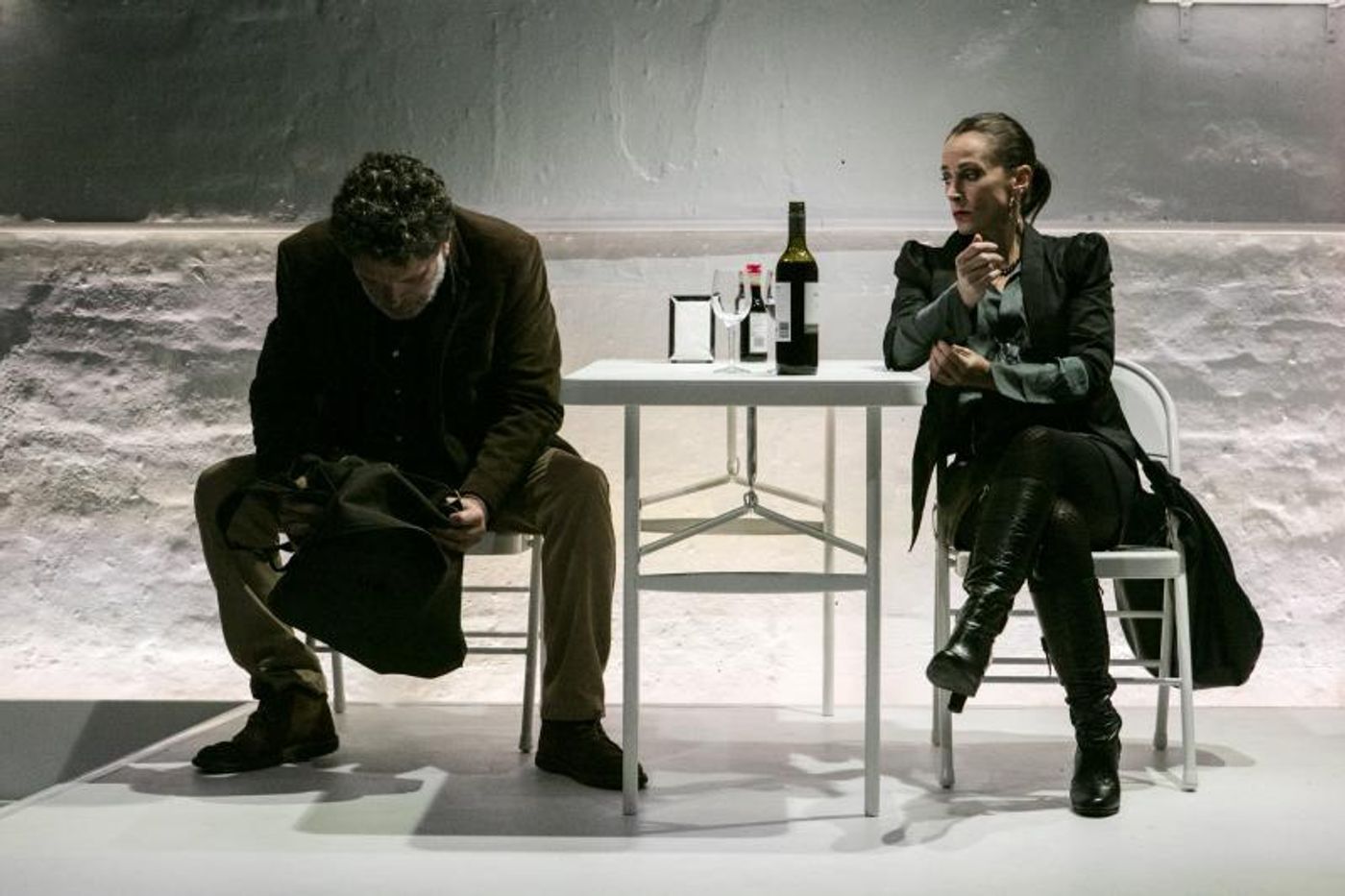
Butel has ensured that his actors inhabit their characters fully, leading to some wonderfully nuanced expressions. Quong Tart's response to the record player is particularly delightful in his easy precision that carries markers of Butel's own trademark physicality. He has also opted for truth in the performance, so he takes the bold risk of having red wine glasses on a white stage where the performers are throwing things around and rolling around, leading to the audience holding their breath as to whether the next toss will be the one that sends a glass smashing.
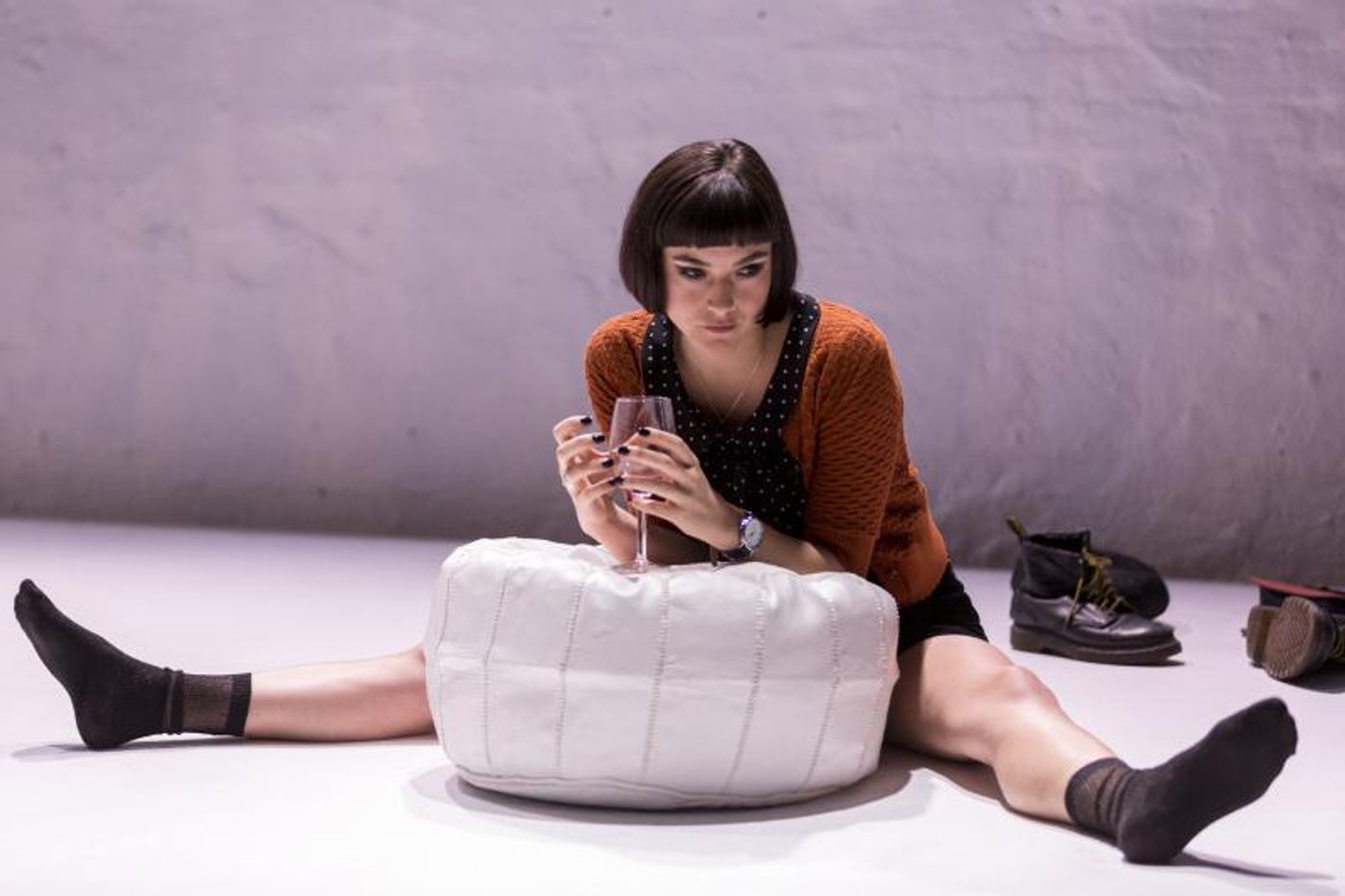
Whilst Gabe has a number of traits that should make him thoroughly unlikable, Quong Tart makes the grumpy alcoholic oddly appealing and therefore plausible that Matilda and Angela could be drawn to him despite their better judgement. He infuses a pathetic undertone to his expression whilst presenting a man that, whilst generally aware that he has a problem, can't or won't do anything about it as the alternative seems like a worse existence.
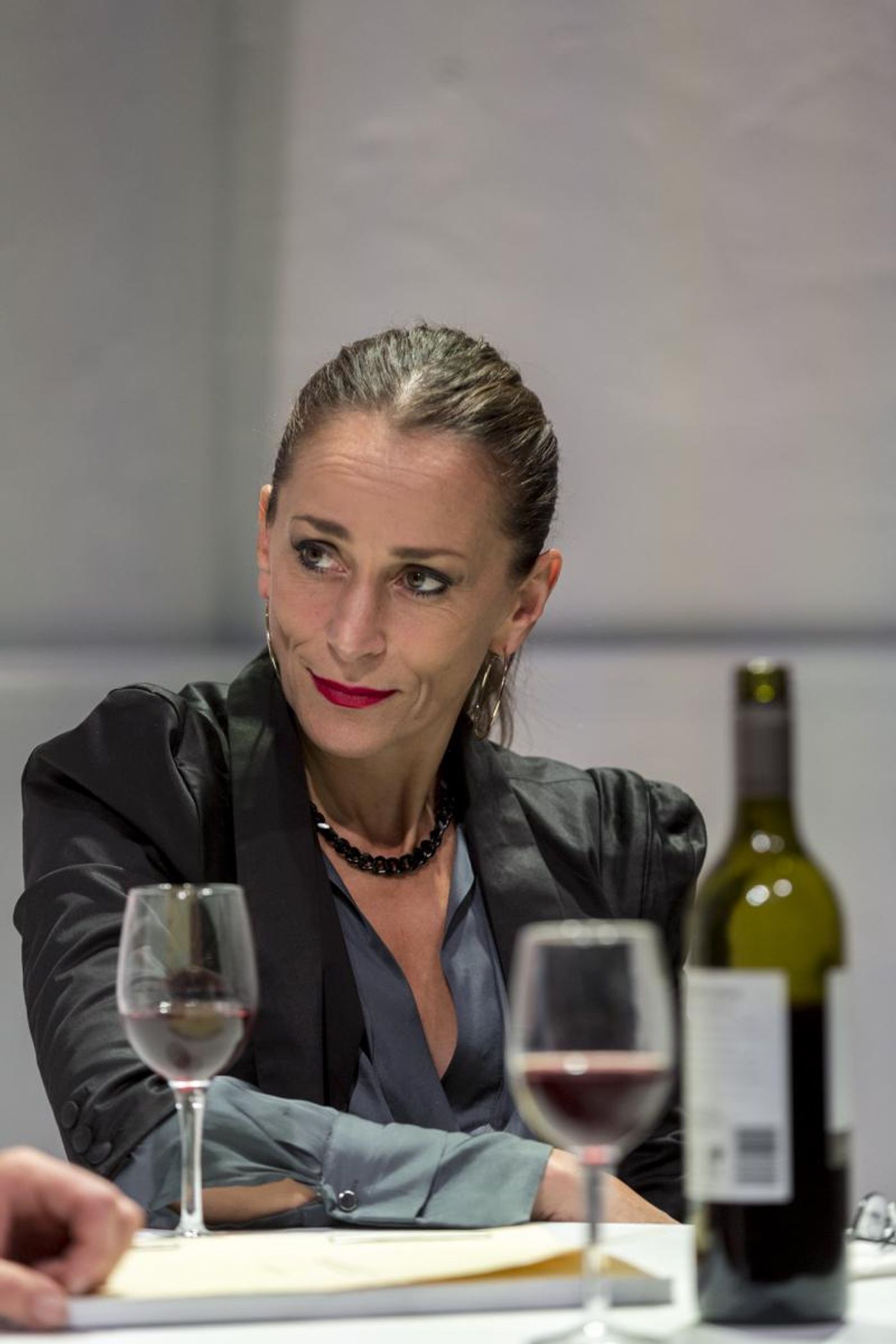
Cheel presents the vibrancy and pluck of a younger woman intrigued by her older lover but grows to reveal that Matilda needs more than weeks in bed and bottomless booze to form a basis of a relationship. Whilst Brown has written her as quite naieve at times Matilda is for the most part quite astute and Cheel captures this reformed reader with a thirst for knowledge well. She ensures that whilst Matilda is inextricably drawn to Gabriel she is seen as potently the most balanced of the quartet, able to extract herself from the 'addiction' to Gabe.
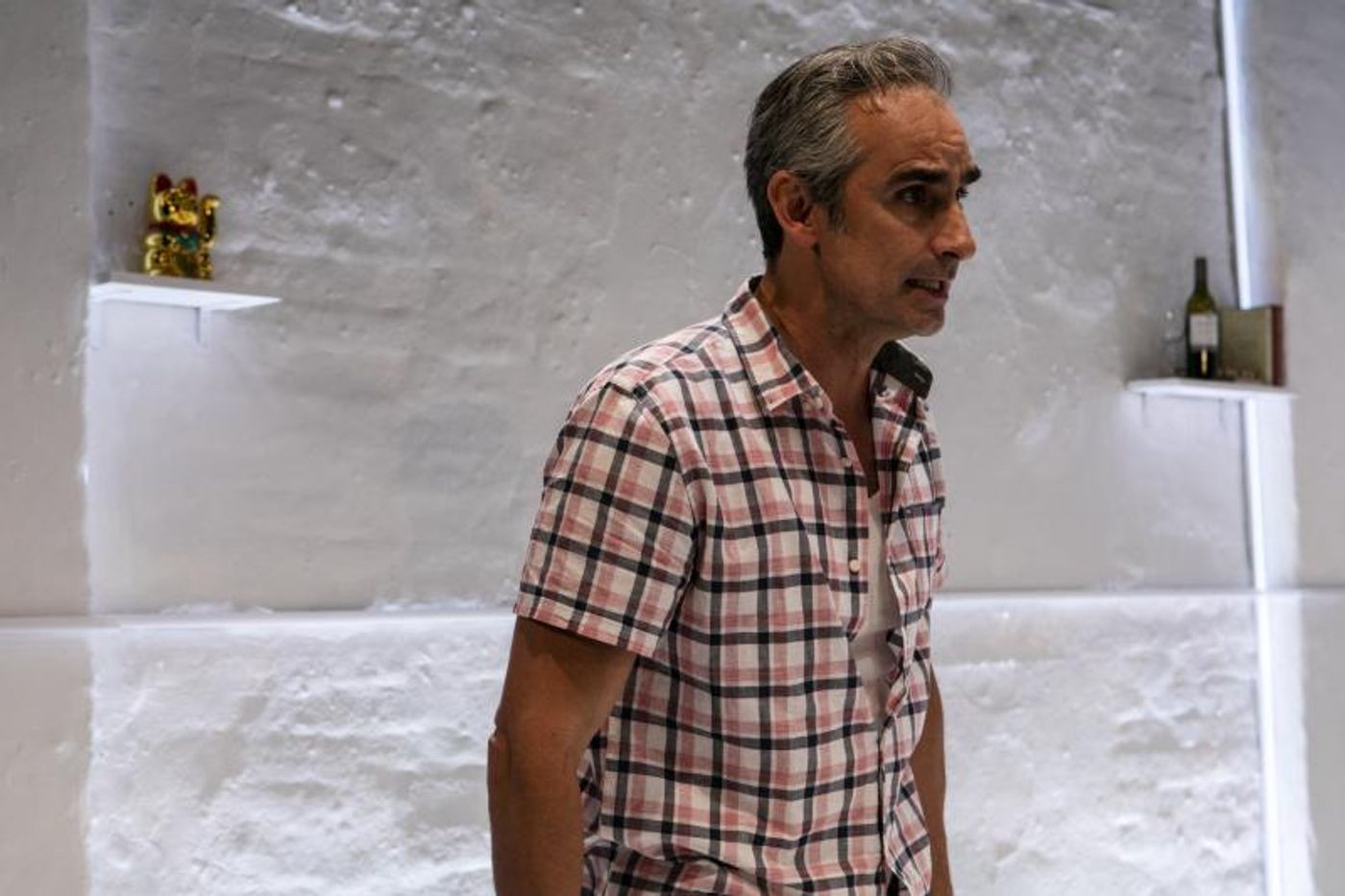
In contrast to Matilda, Angela is definitely addicted to the pain of being in love with Gabe and is unable to address her illness despite Tony reinforcing the need to ditch the dysfunctional relationship in the past. Mastrantone does well with the shallower character sketch that Brown has provided for the more minor character as she paints the conflicting image of a seemingly strong woman well aware of the pain that Gabe has put her through, and a more vulnerable woman still concerned for his welfare. Brown has however given little depth to Tony's character leaving Nasser with a little scope to try to make Tony at all likable, which turned out to be impossible even though logic would say that, as the opposite of Gabe, the new boyfriend should be gaining some sympathy. The Tony that Nasser presents is just loud, brash, obnoxious and unsympathetic to the woman who he purports to love.
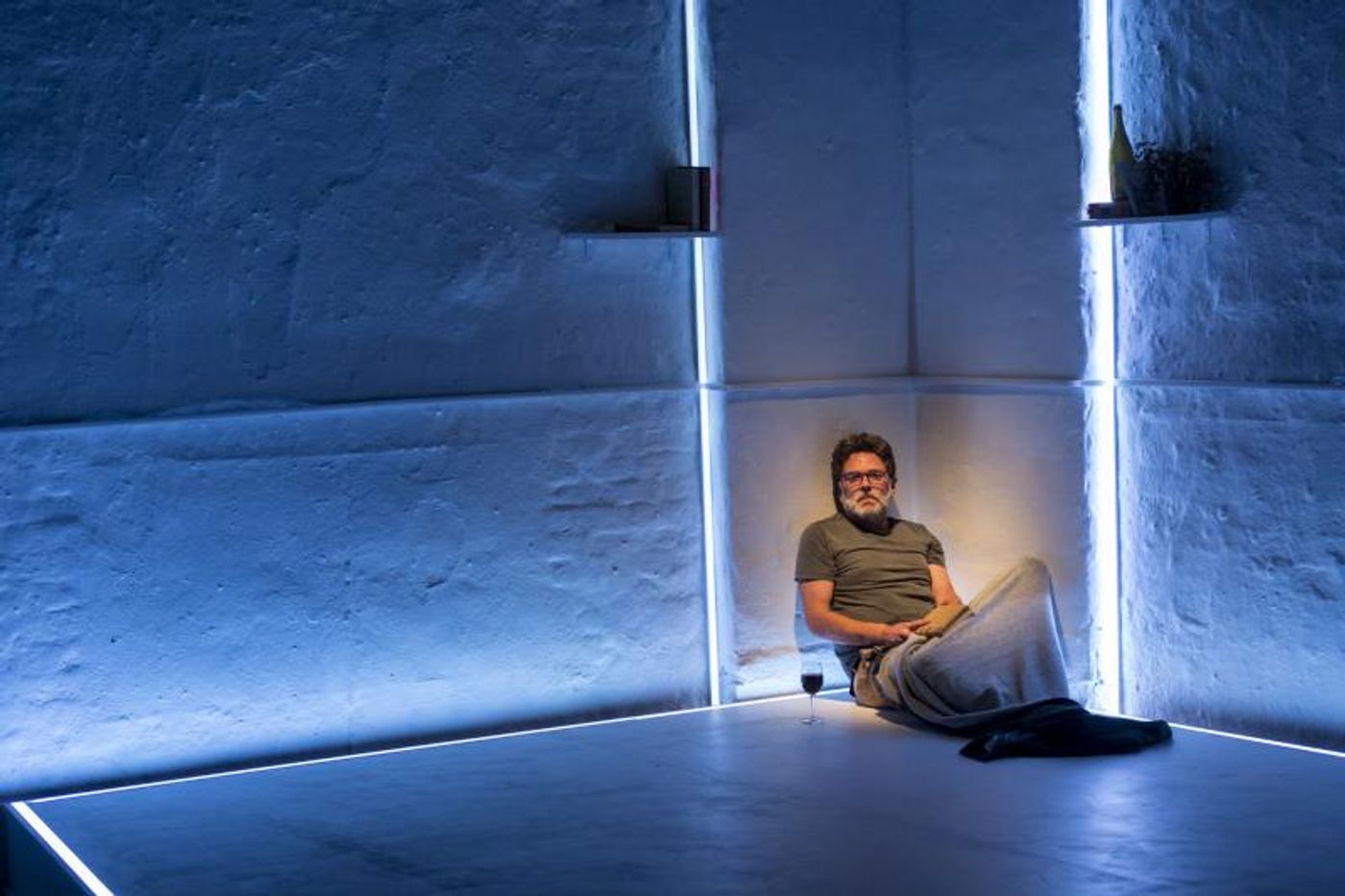
Whilst not particularly groundbreaking, DEAD CAT BOUNCE, which references both the cats in Gabe's life and the short-lived recovery of the stock market after a substantial fall, is an intriguing expression of addiction in the physical and psychological form and the need for the addicted to want to fight rather than just being told to change. An interesting exploration for all audiences as there are moments of recognition, either in yourself or the people around you and it is interesting to consider who you side with in this story.
https://griffintheatre.com.au/whats-on/dead-cat-bounce/
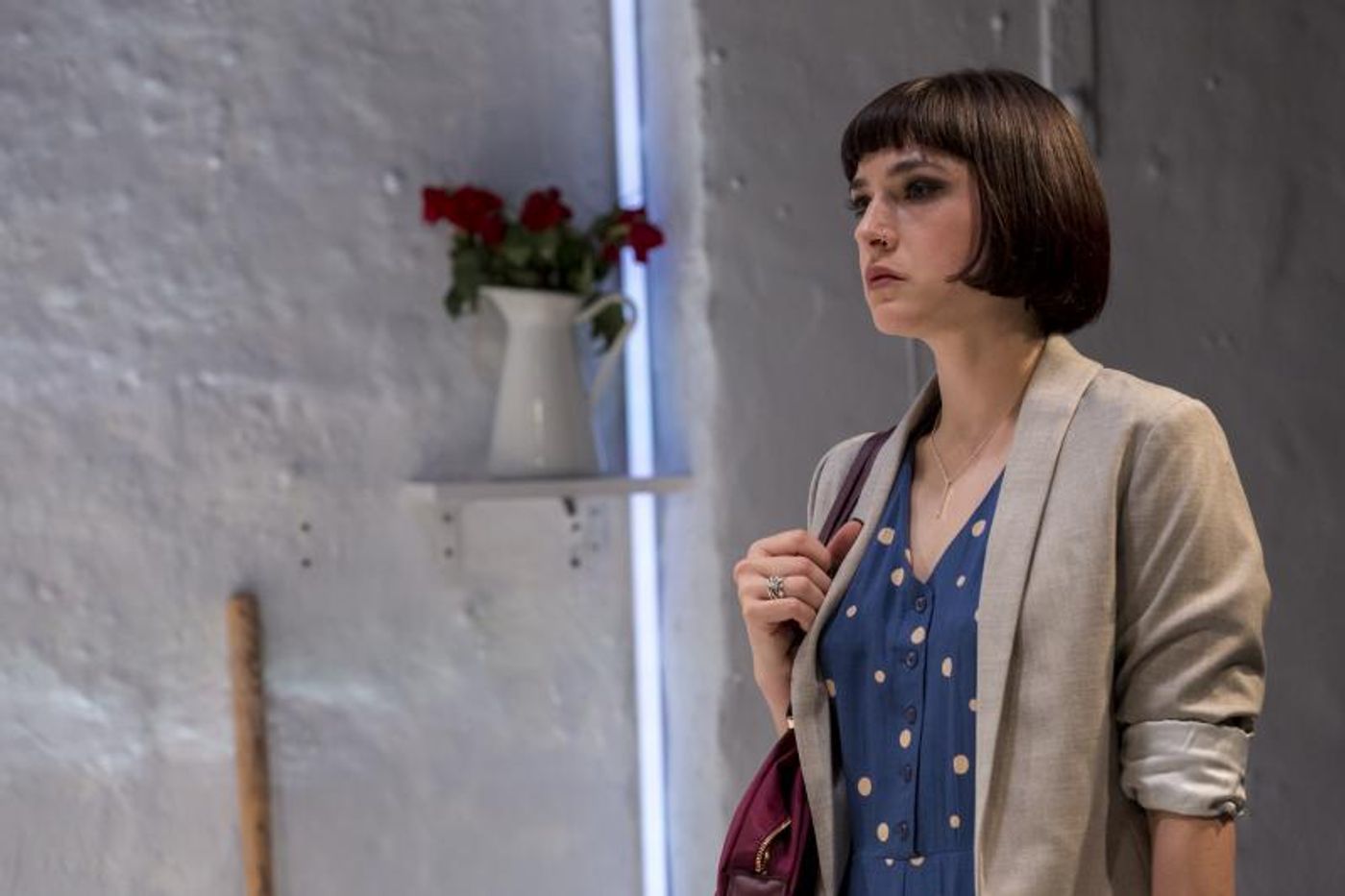
Videos

